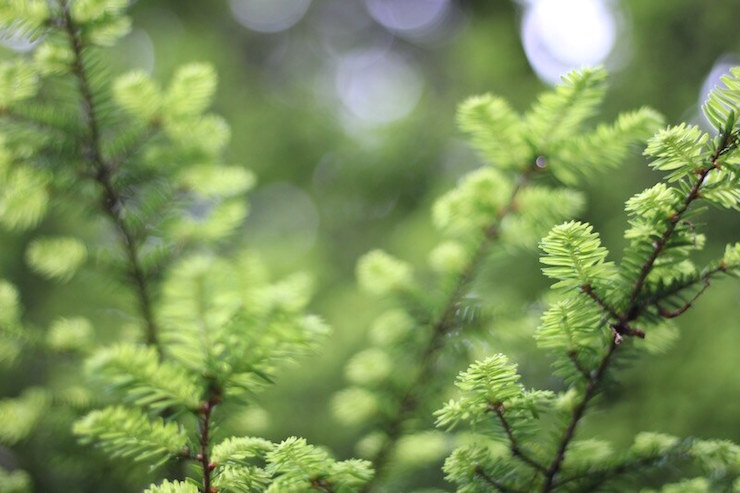How Money Works
It is possible to borrow more money than you can ever possibly repay. If luck and time and charm are on your side, this may never matter.
But luck and time and charm are fleeting companions. So, for a lot of people, it matters. A lot.
When I was in the market for my first home, I got on a call with a lender. He offered a loan that would guarantee the chance to buy a very big house in a neighborhood with other very big houses and sprawling lawns.
I’m not primarily a math-y person, but the deal rang unconvincing. After all, my father had taught me, early on, that how I managed my money could free or enslave me throughout my life. And there was something about the way the numbers seemed to be working that hinted at the latter.
“But we could never repay that,” I remember telling the guy.
He used some fancy talk to explain how in 30 years it would be possible, because of this and that reason, some of which relied on chance in ways that I didn’t see as being quite guaranteed. The arrangement also relied on us giving over a huge portion of earnings for a really long time. My grandmother (my father’s mother) had counseled me never to use more than a quarter of my earnings—or a third, at most—towards housing. To do so would strap me and make it difficult (if not impossible) to do other important and interesting things with my funds.
After some long, hard thinking, we turned down the big-house chance, waited a few years to save a larger down payment and secure a smaller loan, and today I live in a tiny but happy Tudor—on a slice of land that I sometimes wish was bigger but that holds more possibility than you can imagine.
That grandmother who counseled me: she owned ten acres of land that she planted with cherry and plum trees, corn and peas, blackberries and endless rows of lettuces and beans. She was just one of the long line of entrepreneurs I come from, and I am endlessly grateful to her for helping me begin to understand how money works and the choices it would grant me (or not).
Inspired by memories of my loving grandmother, I have done things with my little lot of land that might surprise a few people. I’ve planted countless berry bushes, hazelnut trees, herbs and perennial vegetables. I’ve accidentally brought back the birds, by letting my front hedges grow into wild things that wave in the wind and cut the summer heat from the street. Every day now, I spend a little time watching cardinals, blue jays, chickadees, sparrows, and birds I can’t yet name, perch and flutter.
Sometimes these birds drop down to the lawn, where I’ve taken to letting the wild things grow. I watch the birds as they happily forage for food or steal away grasses for their nests. Occasionally, the smallest birds then swoop up to my bedroom window and nestle themselves near my sill. The other day I watched a sparrow take what appeared to be a nap. I got a close-up view I’ve never gotten before and marveled at how these tiny birds can turn their heads at impossible angles. One little guy eyed me carefully before he decided I was nothing to fear. Then he tucked his head into his pearly feathers and went to sleep.
My yard makes me very, very happy. I feel like a suburban St. Francis—accidental in the making—but nonetheless delighted by the way my little lot has become filled with life.
When I encountered the opening of The Reindeer Chronicles, something surprising came together. Schwartz was talking about the sun. How it generously rains light upon the earth. The question becomes: what do we do with this light? Starting with the wild things, the plants, the opportunity is obvious. Light—solar energy—can be changed into sugar. Some of that sugar kindles the plant’s own growth. Some is released from the roots, where it promotes microbial life and is also stored up in the soil to assist even more life in the future.
I laughed when I made the connection. My wild yard is a lesson in beautiful economics.
There are days when I think if I had to do it all over again, I would get a degree in Economics. But that is not going to happen. I am otherwise engaged. And, besides, my wild yard has everything to say to me about money, which I have come to consider as a big game of conversions. It is the chance I would otherwise not have—to take the energy of my labor and turn it into sugar, so to speak, that I can sprinkle far beyond my own cakes and cookies and tea.
This is a conversation I’ve lately been having with one of the young people in my life, who, sadly, hates money. “Money is how people take things away from you,” she told me recently. She is right, of course. Money can be that. Money is that in too many cases. It’s the guy on the phone, at a time that later caused a huge number of loan defaults—sucking the sugar to himself, where it causes its own kind of personal and societal demise.
But money can also be generosity, which can lead to generativity. I can work to edit an article. The energy I expend can lead, partly, to money in my pocket—“sugar.” A conversion has taken place! What comes next? Depending on my circumstances, I get to choose. Bring more beautiful work to light. Gift a goat to a family. Educate a young girl.
Many of us have an uneasy relationship with money. Some of us see only how it is used to take things away from people (especially if we ourselves have suffered such loss). I am thinking of it as sugar. How much of that does any one life really need? And…how sweet the world becomes—and how alive— when we release the excess from our roots, like the wild things do.
Photo and post by L.L. Barkat.
Learn More About Money and Other Aspects of Economics
Some of us at Tweetspeak are learning more about economics, through Econ Extra Credit. The perspective is modern and socially conscious. Feel free to join us!
Econ Extra Credit
- Learning by Poetry: Pas du Tout - October 8, 2025
- Found in Translation: Gently May It Sing - September 15, 2025
- Learning by Poetry: Vous venez d’où? - September 1, 2025


Rick Maxson says
This is a beautiful essay. It makes me think of the unruly sage in front and back of our house, and the Rosemary bushes that sprawl along our driveway. In the spring the bees come to both, so many you can hear them from just outside the front and rear doors. I know from reading how they dance at the hive to share the bounty. They don’t hoard. They are not even equipped in their perfection to keep more than they need.
I know I would be called naïve to say we should model after the bees, that we are too complex for such a comparison, but what you have shown here is the complexity of wild things, how the parts display a different kind of concentration. Life carries with it a burden to give, to release living from scarcity mentality into abundance through sharing.
L.L. Barkat says
Thank you, Rick. 🙂
Very interesting about bees and hoarding. I would love to hear a little more about that (do they only keep a certain honey quota around?)
I love the idea that life somehow = giving. It reminds me of the trees. (Mother trees do hold back sugar from little ones who need to grow strong before growing big, so the giving also has a when-not-to-give wisdom embedded in it.)
Megan Willome says
I am married to an economics major, and have learned along the way that I enjoy the theory of it all, not always the practice.
But I have been learning a lot about money as I spent the past year helping my dad with his finances and now, handling his estate. It is all about making sure sugar goes where it needs to go.
He had a bush outside the window, beside his chair, that he loved to watch because it got so many birds and geckos and all kinds of critters. I don’t know if future owners will keep that bush or not, but it sure brought him a lot of joy, and he invested absolutely zero pennies in it.
L.L. Barkat says
It is the theory of life, in its way. Of energy. Of conversions and change. In practice, we see the opposite too many times. I sort of wonder why that is. I mean, I’m not willing to just call it “greed” and call it a day. I think maybe we need better models, better rituals, and better systems that facilitate the life-energy-conversions-change theory into our practices. Thoughts?
Oh, that comment about your dad just took my breath. The bush that came at no cost and gave away riches every day.